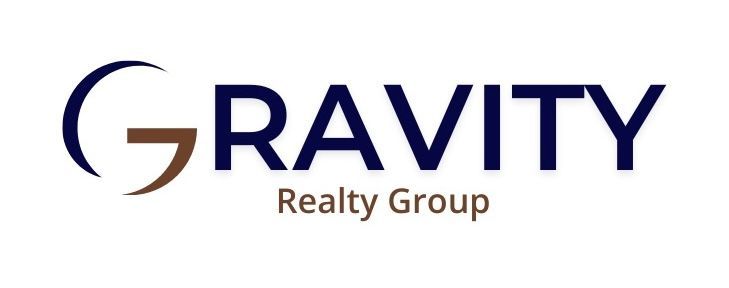How to Transition from Self-Managing to Professional Property Management

Managing a rental property on your own can be a rewarding experience, but it often comes with significant challenges. From handling tenant issues to staying on top of maintenance and legal requirements, self-managing a property requires time, effort, and expertise. As your real estate portfolio grows, or as your personal life becomes busier, you may find that transitioning to professional property management is the best move. At Robert LeBlanc Property Management & Real Estate in Calgary, Alberta, we understand the intricacies of this transition and are here to guide you through it. Here's how to smoothly transition from self-managing your rental properties to hiring a professional property management company.
1. Assess Your Current Situation
Before making the switch to professional management, take a close look at your current situation. Ask yourself the following questions:
- How much time do you spend managing your property?
- Are you struggling to keep up with maintenance requests or tenant communications?
- Have you encountered any legal issues or complications?
- Are your rental properties performing as well as they could be?
If you find that managing your property is becoming overwhelming, or if your properties aren’t generating the income you expected, it may be time to consider professional help.
2. Understand the Benefits of Professional Property Management
Hiring a professional property management company offers several benefits that can enhance the profitability and efficiency of your rental property. Some of the key advantages include:
a. Expert Knowledge
Property management companies have extensive knowledge of the rental market, legal requirements, and best practices. They can help you navigate complex issues and avoid common pitfalls.
b. Time Savings
By delegating day-to-day management tasks to a professional, you free up your time for other pursuits, whether that’s expanding your real estate portfolio, focusing on your career, or spending more time with family.
c. Enhanced Tenant Relations
Property management companies are skilled in tenant relations and can handle everything from tenant screening to lease renewals. This ensures a smooth and professional interaction with your tenants.
d. Proactive Maintenance
Professional property managers conduct regular inspections and maintenance to keep your property in top condition. This not only preserves the value of your property but also helps to prevent costly repairs down the line.
e. Legal Compliance
Navigating landlord-tenant laws can be tricky, but property management companies are well-versed in local regulations. They can ensure that your property is compliant with all legal requirements, reducing the risk of legal disputes.
3. Choose the Right Property Management Company
Selecting the right property management company is crucial to ensuring a smooth transition and maximizing the benefits of professional management. Here’s how to choose the best company for your needs:
a. Research and Compare
Start by researching local property management companies. Look for firms with experience managing properties similar to yours in terms of size, location, and type. Compare their services, fees, and client reviews.
b. Ask Questions
When interviewing potential property managers, ask about their experience, the types of properties they manage, their approach to tenant relations, and how they handle maintenance and emergencies. Make sure they have a clear understanding of the Calgary rental market.
c. Review Contracts Carefully
Before signing a contract, review it thoroughly to understand the terms and conditions. Pay attention to the management fee structure, the duration of the contract, and any additional fees for services like maintenance or tenant placement.
4. Prepare Your Property for Handover
Once you’ve selected a property management company, it’s time to prepare your property for the handover. Here’s what you should do:
a. Organize Documentation
Gather all relevant documentation, including lease agreements, tenant contact information, maintenance records, and financial statements. This information will help the property management company get up to speed quickly.
b. Communicate with Tenants
Notify your tenants about the upcoming change in management. Introduce them to the property management company and explain how the transition will affect them. Assure them that the new management will continue to meet their needs and address any concerns they may have.
c. Address Maintenance Issues
Take care of any outstanding maintenance issues before the handover. This ensures that the property is in good condition when the management company takes over, setting a positive tone for their relationship with the tenants.
5. Maintain Open Communication
The transition to professional property management is a collaborative process that requires ongoing communication between you and the management company. Be sure to:
a. Set Clear Expectations
Discuss your goals and expectations with the property management company. Make sure they understand your priorities, whether it’s maximizing rental income, maintaining the property’s condition, or ensuring tenant satisfaction.
b. Stay Informed
While the property management company will handle most of the day-to-day tasks, it’s important to stay informed about the performance of your property. Request regular updates and financial reports to keep track of your investment.
c. Provide Feedback
If you have any concerns or suggestions, don’t hesitate to provide feedback to the property management company. Open communication is key to a successful partnership.
6. Monitor the Transition Period
The first few months after the handover are critical to ensuring a smooth transition. Monitor the property’s performance during this period and address any issues that arise.
a. Regular Check-Ins
Schedule regular check-ins with the property management company to discuss the progress of the transition. This allows you to address any concerns and make adjustments as needed.
b. Tenant Feedback
Pay attention to feedback from your tenants during the transition. If they experience any issues with the new management, work with the property management company to resolve them promptly.
c. Review Financial Performance
After a few months, review the financial performance of your property. Compare it to previous periods to assess the impact of professional management on your rental income and expenses.
Conclusion
Transitioning from self-managing your rental property to hiring a professional property management company can be a game-changer for your real estate investment. By assessing your current situation, understanding the benefits of professional management, choosing the right company, and maintaining open communication, you can ensure a smooth and successful transition.
At Robert LeBlanc Property Management & Real Estate in Calgary, Alberta, we’re here to help you make the most of your rental property with expert management services tailored to your needs. Contact us today to learn more about how we can assist you in achieving your property management goals.












